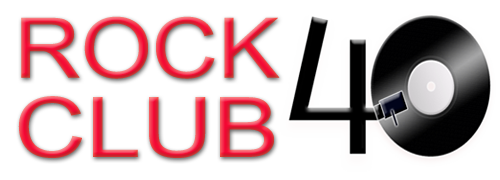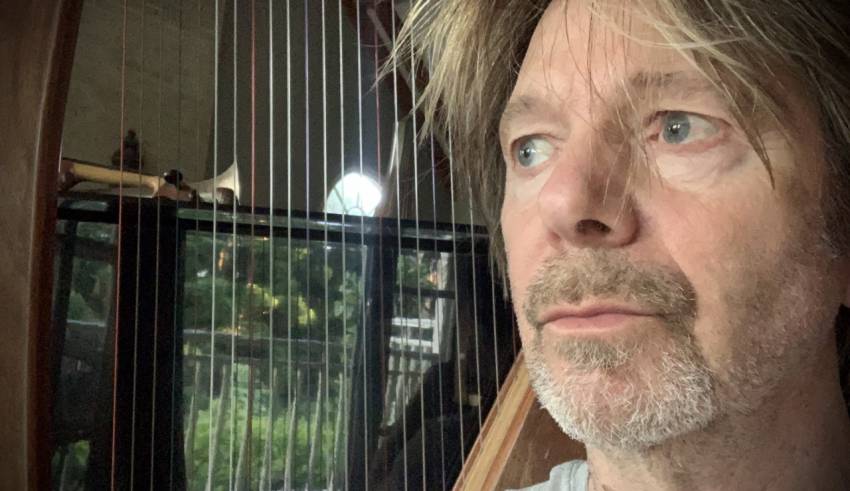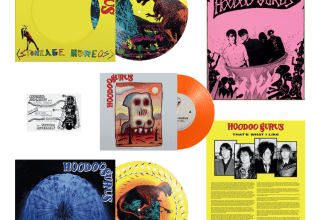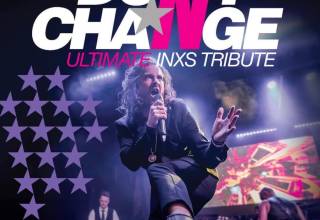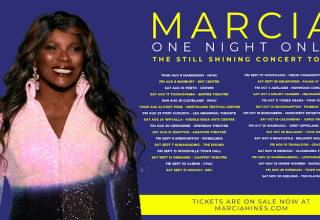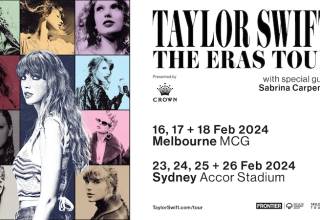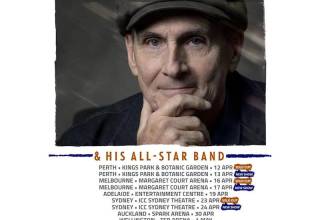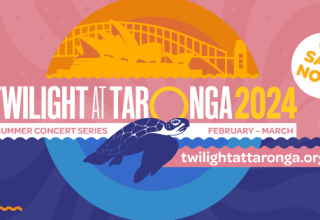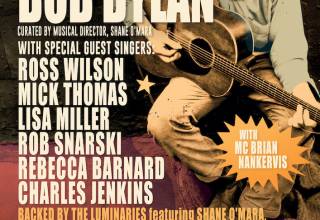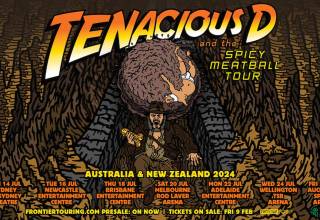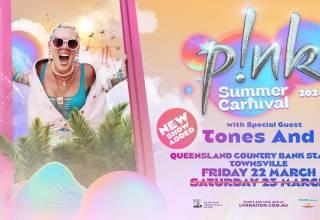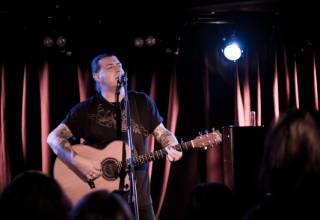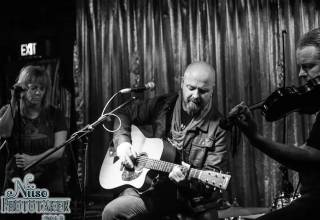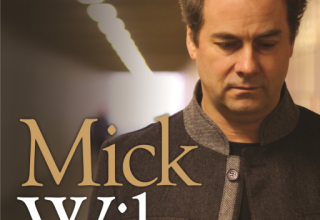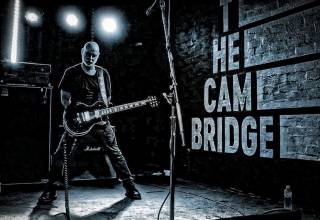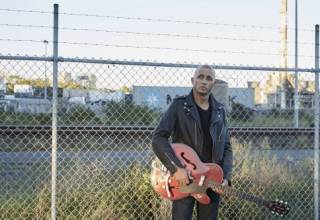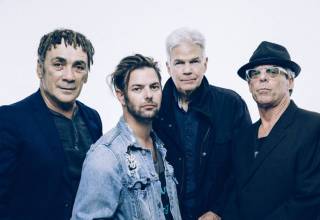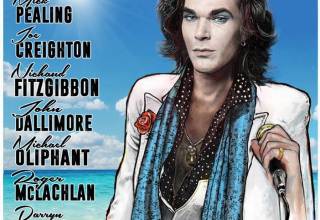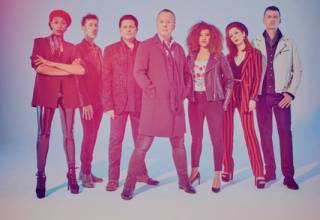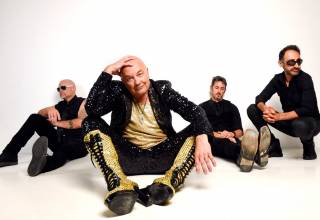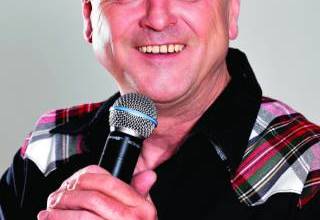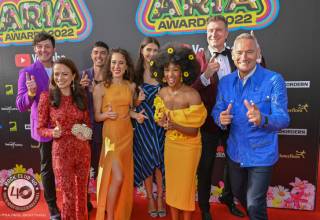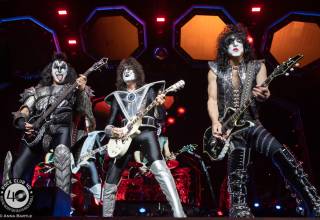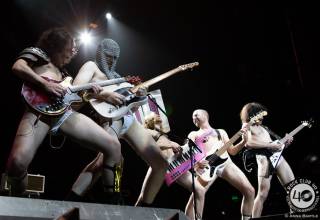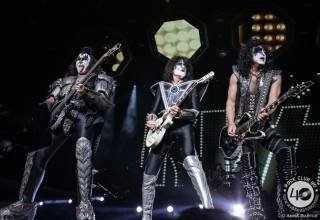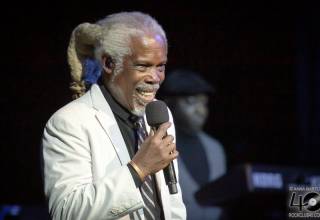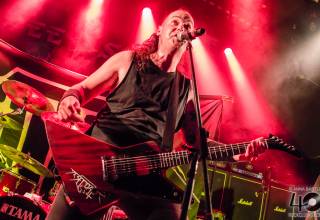I recently had the pleasure of talking with award winning composer and multi-instrumentalist Roger Mason who has been nominated for awards for Best Music for a Mini Series or Tele Movie as well as Best Television Theme for his work on the Stan series, The Commons, at the APRA/AGSC Screen Music Awards in December. For those not familiar with the series, the premise of The Commons is one that is not so far removed from our potential future reality and recent events have indeed brought those scenarios into a much sharper focus here in Australia and globally.
As Roger explains, “It’s not just a story about climate change. It’s a story about climate change that runs parallel to the story of a woman who is trying to become pregnant in an era where you get so many shots before they take you off the program because of limited resources and this is what the title The Commons is referring to. All the resources are being stretched. All the people from the country, where the weather is hitting the hardest are beginning to travel towards the city centres. It’s talking about the future in the not so distant future. It’s talking about things that will happen in our near future.”
“The show was launched on Christmas Day, right in the middle of all of the bushfires. When the bushfires began to take hold across NSW and Victoria, it became evident at that point that maybe we underplayed this whole thing because it also deals with other issues such as the kissing bug which is a South American bug. This bug exists and, in the script, they’re talking about a scenario where there’s a world in which this bug is represented on a large scale that would indeed threaten the human species.” Definitely a plotline that has relevance for our times.”
The Commons is just one of numerous productions on which Roger has worked over the past thirty years. While his early career saw him playing in popular bands with the likes of Gary Numan, Models, Icehouse, Divinyls to name a few, it is in writing musical scores for film and television that the composer truly found his niche, having received multiple awards and nominations in the AACTAs, AFI and APRA awards.
“I used to watch a lot of television as a kid,” he tells me. “While a lot of kids that I knew were out playing sport, I’d be watching television. Sounds like a really unhealthy childhood. In fact, if you throw a television series at me from the late 60s into the 70s, I could probably play the theme music on the piano that I’ve heard on television because things like that really stuck in my head and I always kind of knew I had a propensity for that because I loved the big sweeping themes of certain television shows and films. The more evocative, the more enthralled I was by them so I always knew that I was drawn to that even more so than the rock aspect of stuff but inevitably when I started getting involved in bands, the first big gigs we had were in the post punk era and then we ended up having a bit of success with that and that basically became a thing for the next twelve years but really what I wanted to do was to get into rehearsals before anyone else just to play these big themes that I wrote that I knew had no place in new wave music or anything like that but it’s just the only time that I’d get to do it without being ridiculed by the other guys.”
The turning point came when he was offered some work on a low grade tele movie. “I was perfect for them and they said fine because they were interested in someone who wasn’t going to cost them anything and I was free. That was the deal. ‘If you want to do it, there’s no money,’ so I said OK.” Roger recalls that the movie was ‘terrible’ but adds that his score ‘wasn’t bad’.” But the experience was worthwhile because it gave him a good taste of what was required. “I knew what I had to do and I realised I had a sensibility for it because I think, after you’ve watched so many films and so much television, you automatically tune into the conventions of what’s required. I found I did it quite easily. I found it much easier to do that than to write songs and it was fun and from that point on, having done it, I knew that I could do it and I knew that it was what I wanted to do and so I geared myself towards that.”
“In the meantime, a friend of mine in L.A. put my name forward for a composing course at the Sundance Institute in Utah. He was a composer also and we submitted some demos. I was the first international student that they had accepted at that point. We went to Robert Redford’s Institute in Sundance and what he was doing was bringing in all these hotshot composers. There were six of them and they oversaw what we were doing. I had to learn orchestral techniques and arranging and even conducting and things like that which was quite a leap for me because at that stage I didn’t have a great deal of traditional academic physical training and so it was quite daunting to write all this material. I think it was twenty minutes of score we had to write. And then, ultimately, I had to stand in front of the Utah Symphony Orchestra, which was one of the most terrifying things I’d ever done in my life, and conduct really, really badly. I walked off the stage at the end of it and it was so awful I just wanted to dive into a hole and disappear and I thought ‘I’m just not cut out for this at all.’ The leader of the course said to me ‘Everyone needs to learn how to conduct. Not everyone can conduct but now it’s my turn.’ There were several other students there from Juilliard and they really knew their stuff. They were much better arrangers, orchestrators and conductors than I was. So anyway he took the baton from me and he conducted the orchestra with my score while I sat in the audience and all of a sudden, it came to life because he knew what he was doing. I actually knew what I was doing with the writing and with the arranging. He said ‘This is to make you realise how important a conductor is to an orchestra.’ and it was a good little lesson because from that day forward, I closed my book on conducting and I just hired other people to do it,” he says with a laugh. “because I knew that I would never make a conductor, but I wasn’t too bad at the other stuff.”
I’m sure I don’t have to remind anyone how tough things are out there at the moment for everyone and the film industry has certainly been hit hard but, as Roger explains, he hasn’t exactly been idle this year. “Everything’s shut down as you well know. As far as the film industry is concerned, we’re in the same basket. That’s where we are completely aligned because there is very little in production at the moment, partly because of COVID rules but partly because there’s just no money.” But while Roger hasn’t been composing for film or television over the last nine months, he hasn’t been twiddling his thumbs either. There has been plenty to keep him busy, including a project that stemmed from a chance meeting with singer/songwriter Steve Kilbey. “Steve was recording a solo album with Gareth Koch and (fellow former Models member) Barton Price playing drums and so I was helping Barton pack up at the end of the night and Steve said do you want to play some keyboards on my album? I said ok. He said, ‘Pop in tomorrow,’ so I came back the next day and four days later I was still there.”
Roger will be playing with Steve Kilbey as part of The Winged Heels on Saturday 21st November at Max Watts House of Music in Sydney where they will be launching their much acclaimed CD, ‘Eleven Women’ as part of the Great Southern Nights initiative by Destination NSW. There will be two sets; the first, showcasing the ‘Eleven Women’ CD in its entirety and the second featuring favourites from Steve Kilbey’s long collaborative career. Support act Maia Marsh. For tickets, go to:
https://aucentury.sales.ticketsearch.com/sales/salesevent/2608
Limited meet and greet packages available.
The Screen Music Awards 2020 take place on 1st December and if you missed The Commons earlier in the year and you’re eager to catch up on what all the fuss is about, go to: https://www.stan.com.au/watch/the-commons
© SHARYN HAMEY 2020. All Rights Reserved
